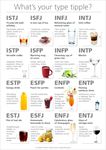FIRO
How personality type affects team performance and job satisfaction
Global Marketing, The Myers-Briggs Company
New research sends clear message to team leaders
Enhancing communication in teams
Melissa Summer, The Myers-Briggs Company
In this post we explore practical strategies for improving team communication and recommend tips to improve how team members interact on the job.
Overcoming team communication challenges
Melissa Summer, The Myers-Briggs Company
In this post, based on an interview with Myers-Briggs Professional Services Principal Consultant and Depth Psychologist Dr. Marta Koonz, we discuss communication in teams, the psychological needs of teams, and their impact on collaboration.
Unlocking Team and Leadership Potential through FIRO Certification
Melissa Summer and Kevin Wood, The Myers-Briggs Company
In the ever-evolving landscape of HR and training and development, organizations are recognizing the significance of assessments in unlocking individual and team potential. Among these assessments, the Fundamental Interpersonal Relations Orientation™ (FIRO®) assessment stands out as a powerful tool for team development and leadership growth.
Psychological Needs of Teams
Melissa Summer, The Myers-Briggs Company
In this episode of The Myers-Briggs Company Podcast, we’re joined by Dr. Marta Koonz, Principal Consultant for The Myers-Briggs Company, as she walks us through insights around using psychological needs to better work relationships and improve teamwork.
How to foster an inclusive culture in a diverse organization
Global Marketing
Overestimating progress is one of the barriers to an inclusive culture
Building leadership skills from home: using an understanding of interpersonal skills to develop your leadership capabilities
Marta Koonz
Working from home presents both opportunities and challenges. A basic understanding of interpersonal needs from the perspective of the FIRO-B® assessment can provide insights that can lead to a deeper understanding of your own interpersonal needs and those of your team.
3 Types of workplace conflict – and a tool to help resolve them
Vanessa Bradford
There are three types of conflict that people experience at work. Fortunately, HR professionals, leadership consultants, and executive coaches can help leaders and employees improve their conflict resolution skills with the FIRO-B® assessment.
Measuring the behaviors of successful, inclusive leaders with the FIRO-B tool
Author Vanessa Bradford
Did you know that interpersonal behaviors can be measured in an objective way? Through the FIRO-B® assessment, HR professionals and leadership consultants can check how well a person’s behaviors cultivate inclusion and success in the workplace.
How can you help managers develop an inclusive workplace for employees?
Vanessa Bradford
Inclusion in the workplace gives people a voice and drives performance. And the FIRO-B assessment can help your people understand how their interpersonal behaviors are tied to company culture and inclusivity.
How to build a more effective hybrid workplace
Global Marketing, The Myers-Briggs Company
Paying closer attention to employee needs is the way to make remote, in-office, and hybrid teams function better
Connecting with the people you lead
Melissa Summer, The Myers-Briggs Company
Dr. Martin Boult shares his expertise on leadership and connection in this episode of The Myers-Briggs Company Podcast.
Were you asked if you wanted to go back to the office?
Kevin Wood, The Myers-Briggs Company
If not, you might be part of a hybrid strategy that’s about to fail.
Social contracts, returning to the office and retaining your people in the new hybrid workplace
Melissa Summer, The Myers-Briggs Company
As employees return to the office, they’re expecting more flexibility in their social contracts with employers. How can HR help?
Why inclusion is the key to diversity
by Kevin Wood, The Myers-Briggs Company
For diversity to thrive, inclusion is a must.
Another way to look at stress
Kevin Wood, The Myers-Briggs Company
How FIRO helps people to build trust in their relationships, improve morale and reduce stress in the workplace.
Available now: Psychology of change in the hybrid workplace
by Melissa Summer, The Myers-Briggs Company
Change is inevitable. And as the hybrid workplace becomes a new normal for many organizations, it brings specific benefits and challenges to managing uncertainty and successfully implementing change initiatives.
Using interpersonal needs to make the hybrid model work for teams
Melissa Summer, The Myers-Briggs Company
Is it possible to get the best of both worlds with hybrid work?
The changing shape of teams
The Myers-Briggs Company
Teams and Google’s Project Aristotle
MBTI Type, FIRO, love and relationships

Betsy Kendall, VP Global Programmes, Delivery & Content
It must be love
Top content summary from 2016

John Hackston, Head of Thought Leadership, OPP
Did you miss some of the most popular content from last year?
Breaking the ice

Penny Moyle, CEO OPP
Looking for an easy to implement icebreaker? Bingo!
FIRO and MBTI: the gold standard tools for coaching

Betsy Kendall COO and Head of Professional Services, OPP and Alice King, Senior Consultant, OPP
How the FIRO tool adds so much value to any MBTI coaching session
Valentine's reflections: Sandra and Terry 20 years on
Betsy Kendall - COO at OPP
What the FIRO questionnaire can tell us about interpersonal compatibility
FIRO icebreaker exercise

Betsy Kendall - COO at OPP
A great exercise for groups or teams - download the instructions and cards for free.
FIRO – getting so much from so little

Jenny Rogers - Executive Coach at Jenny Rogers Coaching
I am coaching the CEO of a large charity. He’s 55 and has been in his job for nine years. He looks grey and anxious, slumping in his chair. “I’m tired of my team treating me like their parent. It’s hard enough being a parent at home. I’m exhausted, our funding is under threat, I don’t think I want to do this job any more”. He tells me readily that he’s been what he calls ‘psychometrified’ many times; but he’s never taken the FIRO- B assessment...
Top tips for increasing the impact of your team coaching – part 1

Katy Lyne - Principal Consultant at OPP
As an OPP Consultant, I work with many teams across a wide variety of sectors and industries. I was recently talking to a client, herself an L&D practitioner, who asked me about my approach to team coaching – in particular what my ‘top tips’ were for ensuring that the work had impact and made a real difference to how the team functions. This got me thinking about the key elements involved.
Top five blog articles of 2014

OPP Ltd
Visits to our Personality Matters Blog were at an all-time high in 2014, and we covered a wide range of topics in our weekly posts. Over the last 12 months we've talked about the best MBTI-based books and the various resources available for L&D teams. We’ve promoted Movember, and we’ve chipped in to the Paul Flowers furore. We've continued to thrive as thought leaders in a diverse range of workplace psychology issues, from recruitment and assessment centres to polarity management. But what are the top five posts that readers have returned to again and again?
Top 10 best-selling practitioner resources

OPP
To celebrate the launch of the new shop we thought it would be useful to highlight the most popular resources that have been purchased through our online ordering during 2014. These are the items that our customers find most useful (along with the many popular reports ordered by practitioners via OPPassessment). How many of them are in your portfolio of essential resources?
What do you WANT from me?! How understanding motivation can lead to more effective behaviour

Pamela Valencia, Solutions Consultant at CPP, Inc.
Like most people, throughout my life I have seen relationships that work and others that don’t. When they don’t work, often it’s because people’s interpersonal needs are not being met or they are in conflict. For example, if someone has High Expressed Control and Low Wanted Control and is working with someone who has the same interpersonal need, someone is not going to get to express control at the level he or she wants. At the same time, one person may be expressing control much more than the other person wants. The challenge is when people don’t understand what is motivating their behaviour or the behaviour of another person. Why is this important? Seeking to understand that motivation can assist an individual in choosing more effective behaviour.
What’s going on under all that forming, storming and norming in teams?

$username
In my ten years’ experience of working with teams at all levels in organisations, I’ve found the FIRO® tool one of the best ways to accelerate a team’s development. It’s a catalyst for the transition from a group of individuals working well (or badly!) to a team that has common objectives and drive, and team members who understand the journey they need to take to become high performing. Once they’ve experienced FIRO, team members are often more able to discuss openly what they need from each other to support the team and share resources, becoming less territorial and more collaborative. What I love about FIRO is that it really gets to the core of what’s driving people and their interactions with each other.
Categories
- B Corp
- Care
- Careers
- Coaching
- Communication
- Conflict management
- CPI260
- Current affairs
- Decision making
- Emotional intelligence
- FIRO
- Inclusion
- Infographics
- Leadership
- Leadership development
- Managing change
- Managing stress
- MBTI
- OnBoarding
- Personal development
- Podcasts
- Recruitment
- Social media
- Sport
- Strong
- Team development
- TKI
- Top tips
- Training